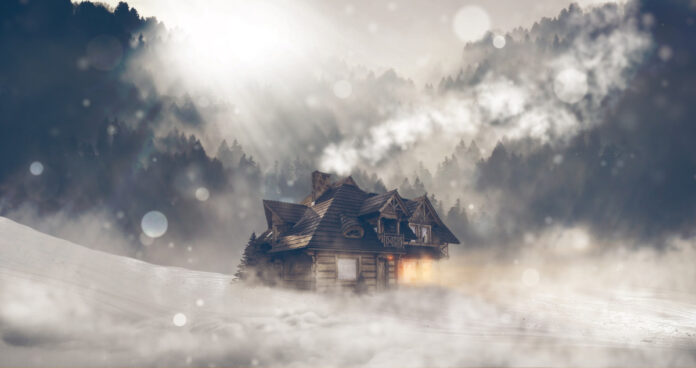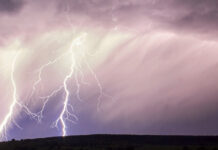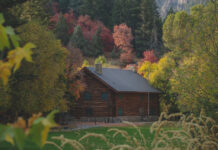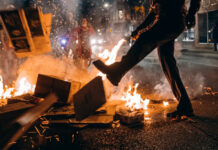Two years ago, we moved to our prepper property, which is well off the beaten path. For those who may be new to the blog, we live in the Appalachian Mountains, about 40 miles from the nearest interstate, close to the end of a six-mile long dead-end road. The last mile or two before our house is dirt, climbs more than 1,000 feet, and requires four-wheel drive when there is adverse weather. Hundreds of uninhabited mountainous acres surround us.
That’s a long way from New York City, where I once lived (a fact I rarely admit to the locals). After leaving New York, I moved to smaller and smaller cities and suburbs and exurbs until our journey ended here. About the only place less populated than our location would be a ghost town.
Why did I leave the nice job and the many cultural “benefits” of the big city? In one word: People.
Cities have too darn many people. Or, as Swiss philosopher Jean-Jacques Rousseau wrote in Emile: “Of all animals, men are the least fitted to live in herds.”
People are Unpredictable
I believe there are two kinds of people: those you know well enough to trust and can predict what they will do, and everyone else. There may be many good people among the “everyone else,” but until they have proven themselves, they are a “them,” not an “us.”
I don’t think the majority of people are evil, although some are, but they are unpredictable. Just because a man goes to church doesn’t mean he won’t kill you. The nicest guy you know at work might be a mean drunk who beats his wife. Maybe the laid back fellow you chat with occasionally is laid back because he is heavily medicated. That girl who is so enthusiastic might be bipolar. That charming person you had drinks with the other evening might be a psychopath. Sadly, you never know until it is too late.
People who appear “normal” today might act differently when stressed. Take away their access to food or water and see how long they remain polite and friendly. Take away the possibility that they will get arrested and see how quickly they start committing crimes. (We’re getting to see this experiment in real time in those “defund the police” cities with their Soros district attorneys.)
How do YOU Act when No One is Watching?
My dog knows how to behave. She knows what she is allowed to do and what is prohibited. That doesn’t stop her from stealing a piece of food off the counter if no one is watching.
People are like that, too. Some will misbehave when they think no one is watching because there will be no negative consequences. When the power is out for a week or more, the video cameras are all dead, and the police aren’t responding to calls, what’s stopping them from acting out? The only consequence maybe you and your gun.
The purge movies are scary in part because inside we all know there is some truth to them. Enough people will revert to their ugly inner natures and go on raping and murdering sprees after the SHTF that I’d rather deal with ten or 20 people in the one square mile around my house than the 2,000 or 20,000 neighbors I’d have in a city.
Desperate People do Desperate Things
When the nukes go off, the EMPs knock out the power, or some other massive disaster strikes and things shut down across the country, there will be panic. In the cities, people who think they are smart will run to the stores and clear out the shelves, regardless of if the registers work. In the suburbs, the smart folk will rush out and raid or occupy the nearest grocery or Walmart distribution center.
The smarter folks will already have their supplies. The smartest will be at or on the way to their bug out location. Only the naïve clueless will huddle at home hoping the government will save them. And that’s OK with me, because staying home and hoping for a rescue will keep them from heading into the countryside until it is too late.
For all those that think FEMA will come and help them, here’s a piece of news: FEMA specializes in moving supplies like bottled water and MREs to disaster areas from warehouses and staging locations in unaffected areas. They also do things like coordinate emergency housing and transportation and dole out emergency funding. They won’t be much help if there are no unaffected areas from which to draw supplies and no areas where electricity is working. Sure, they have generators, but they also have a limited amount of fuel. At best, FEMA will set up refugee camps, although they will probably give them a nicer name.
Within a few days, the water will stop. The food will run out. Other services will stop. It will take another day or two for desperation to set it. Some people will get angry, others will grow depressed, and the strong will steal from the weak. Did you see how quickly Raz Simone set himself up as the warlord in charge of the so-called Capital Hill Autonomous Zone in Seattle two years ago? What makes you think it will be any different in your city?
The Golden Horde
When it becomes clear that help is not on the way and life in the city is likely to lead to death or enslavement, people will leave. They will hope to find stores that have not yet been plundered, warehouse that remain unpillaged, preppers who might have stockpiles from which to feed them, farmers who might have food on the hoof or in their barns, or any other source of food. These aren’t preppers. They won’t have a plan, but they will have figured out that staying in the city is a death sentence.
There will be an early peak of these refugees who leave the cities in the first few weeks in pursuit of food, water, and hope. More will leave later. Few of them will be welcome in the hard-hit country.
This mass exodus of city folk heading out of the cities in search of sustenance and shelter is known in prepper circles as the Golden Horde. It will be one of the biggest threats faced by those outside the city.
By Car or by Foot
At first, the golden horde will drive, if their vehicles work, and they will take the interstates because Google Maps won’t be working and it’s the only way they know. They will run out of gas, run into stalled traffic, and may find that their way has been blocked by those who prefer to keep them in the city. As the exodus gets worse, it would not surprise me to see people take out bridges and overpasses to prevent city folk from coming to their area. (Another example of us versus them.) Those tall cement walls they built along the Interstate will confine and channel the Golden Horde, trapping them and possibly creating killing fields.
Later, the refugees will take secondary roads, or even boats if the city is on a river. Some will bicycle. Many will walk. Those with come sense will go cross country, avoiding the roads and traps.
It’s a Long Walk
Before an outsider reaches our county, they’d have to fight their way out of the city, along miles of Interstates, through the suburbs and past towns, and then through a neighboring county. If they managed to do that, they still have to go up and down multiple mountains, pass through more small towns and villages, and get by many people who don’t want outsiders to come in before they reach us. This may include the sheriff and definitely includes people who have heavy equipment with which to barricade the road, tear out a section of it, or bring down bridges. Let’s not forget one thing poor Appalachian counties have plenty of: veterans from every conflict since Vietnam.
I just don’t see outsiders getting this far unless it’s the military, and I don’t see why they would bother. If that is the case, then I am thankful that mountains are not tank country.
Neighbors
In a post-SHTF scenario in rural America, some of your neighbors are going to be your friends, allies, and trading partners. You will work with them to form a community. But there will also be neighbors who won’t fit into that arrangement. These may be the addicts and the meth dealers, or they may be the angry son-of-a-bitches that never fit in and aren’t very social.
The good news is the locals know who these folks are and have since they were troublesome teenagers. In a small community, it is hard to hide things. We know who is the arsonists, who cooks meth, and the guys who sell shine. They are left alone because this area is big on live-and-let-live, but when they encroach on the lives of others, kill their livestock, or steal their property, that changes. When their bad habits leave them ill prepared to survive and unwilling to work or contribute, I expect most of them won’t be around very long. We won’t need any extra mouths that aren’t accompanied by calloused hands.
Off the Beaten Path
As I alluded earlier, there are advantages to being off the beaten path. If you have yet to find your prepper property, look for somewhere at least 20 miles from the Interstate. Look at places that are not on though roads, and where the route in can be easily blocked to impede visitors. For you folks living in a subdivision, think of it as being on a cul-de-sac far from the entrance. Sure, it takes some added time to get anywhere, but that delay can pay off in spades when someone is trying to attack you.
I occasionally see a headline on Yahoo Finance or other financial websites about people who “retire” or at least stop working in their 20s, 30s or 40s. They live their life off their savings. Many of them travel the world, move to somewhere in Europe or South America with a lower cost of living, or take up RVing. Some of them may work remotely or take a part-time job from time to time.
If you have ever considered doing this, I would encourage you to move to your bug our location or to buy a prepper property instead. Start your homestead, improve or build your house, support your local business, become known to the locals, and don’t tell people you’re a prepper.
The sooner the better.








